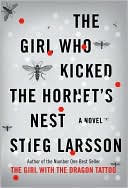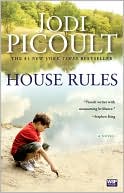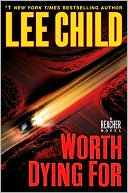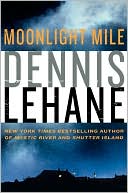Shakespeare's Trollop (Lily Bard Series #4)
Shakespeare, Arkansas, is home to endless back roads, historic buildings, colorful residents—and the occasional murder. It is also home to Lily Bard, the local karate expert/cleaning woman with a particular knack for finding skeletons in closets.\ But when the local woman of ill repute is found murdered, being familiar with her dirty laundry could make Lily the next Shakespearean to die.\
Search in google:
Shakespeare, Arkansas, is home to endless back roads, historic buildings, colorful residents—and the occasional murder. It is also home to Lily Bard, the local karate expert/cleaning woman with a particular knack for finding skeletons in closets. But when the local woman of ill repute is found murdered, being familiar with her dirty laundry could make Lily the next Shakespearean to die.Publishers Weekly"There's nothing more revealing about people than the mess they leave for someone else," says Lily Bard, who has the perfect job for an amateur sleuth--she's a cleaning lady in the small, close-knit town of Shakespeare, Ark. A detached and wary observer of others, Lily reluctantly finds herself investigating the murder of one of her employers, Deedra Dean, in her latest engaging outing (after 1998's Shakespeare's Christmas). It's Lily's misfortune to discover Deedra's violated body in her car on a deserted road, the apparent victim of a tryst gone sour. For Lily, who already knows more than she wants about the promiscuous young woman's habits, the details don't add up. Since many of her other clients are related to Deedra, Lily endures their catty, sometimes malicious gossip, but when she helps Deedra's mother clean out the dead woman's apartment, she quietly disposes of Deedra's collection of compromising photos and videos. The nature of the crime forces Lily to deal with her own scars, legacies of the brutal abduction and rape in Memphis that sent her scrambling for the tranquil environs of Shakespeare. A wise, self-counseled soul, as well as a skilled karate student and fitness buff, Lily is just foolhardy enough to charge into a burning house to save a frail, mean old man. Indeed, Lily has such an engaging voice, full of pain and redemption, that the collecting of clues and the unfolding of the crime take a back seat to her personal story. (Aug.) Copyright 2000 Cahners Business Information.\|
\ \ Chapter One\ \ \ By the time I opened my eyes and yawned that morning,she had been sitting in the car in the woods for sevenhours. Of course, I didn't know that, didn't even knowDeedra was missing. No one did.\ If no one realizes a person is missing, is she gone?\ While I brushed my teeth and drove to the gym, dewmust have been glistening on the hood of her car. SinceDeedra had been left leaning toward the open window onthe driver's side, perhaps there was dew on her cheek, too.\ As the people of Shakespeare read morning papers,showered, prepared school lunches for their children, andlet their dogs out for a morning's commune with nature,Deedra was becoming part of nature herself—deconstructing,returning to her components. Later, when the sunwarmed up the forest, there were flies. Her makeup lookedghastly, since the skin underlying it was changing color.Still she sat, unmoving, unmoved: life changing all aroundher, evolving constantly, and Deedra lifeless at its center,all her choices gone. The changes she would make fromnow on were involuntary.\ One person in Shakespeare knew where Deedra was.One person knew that she was missing from her normalsetting, in fact, missing from her life itself. And that personwas waiting, waiting for some unlucky Arkansan—ahunter, a birdwatcher, a surveyor—to find Deedra, to setin motion the business of recording the circumstances ofher permanent absence.\ That unlucky citizen would be me.\ \ \ If the dogwoods hadn't been blooming, I wouldn't havebeen looking at the trees. If I hadn'tbeen looking at thetrees, I wouldn't have seen the flash of red down the unmarkedroad to the right. Those little unmarked roads—morelike tracks—are so common in rural Arkansas thatthey're not worth a second glance. Usually they lead todeer hunters' camps, or oil wells, or back into the propertyof someone who craves privacy deeply. But the dogwoodI glimpsed, perhaps twenty feet into the woods, was beautiful,its flowers glowing like pale butterflies among thedark branchless trunks of the slash pines. So I sloweddown to look, and caught a glimpse of red down the track,and in so doing started the tiles falling in a certain pattern.\ All the rest of my drive out to Mrs. Rossiter's, andwhile I cleaned her pleasantly shabby house and bathedher reluctant spaniel, I thought about that flash of brightcolor. It hadn't been the brilliant carmine of a cardinal, orthe soft purplish shade of an azalea, but a glossy metallicred, like the paint on a car.\ In fact, it had been the exact shade of Deedra Dean'sTaurus. There were lots of red cars in Shakespeare, andsome of them were Tauruses. As I dusted Mrs. Rossiter'sden, I scorned myself for fretting about Deedra Dean, whowas chronologically and biologically a woman. Deedra didnot expect or require me to worry about her and I didn'tneed any more problems than I already had.\ That afternoon, Mrs. Rossiter provided a stream-of-consciousnesscommentary to my work. She, at least, wasjust as always: plump, sturdy, kind, curious, and centeredon the old spaniel, Durwood. I wondered from time totime how Mr. Rossiter had felt about this when he'd beenalive. Maybe Mrs. Rossiter had become so fixated on Durwoodsince her husband had died? I'd never known M. T.Rossiter, who had departed this world over four years ago,around the time I'd landed in Shakespeare. While I kneltin the bathroom, using the special rinse attachment to flushthe shampoo out of Durwood's coat, I interrupted Mrs.Rossiter's monologue on next month's Garden Clubflower show to ask her what her husband had been like.\ Since I'd stopped her midflow, it took Birdie Rossitera moment to redirect the stream of conversation.\ "Well ... my husband ... it's so strange you shouldask, I was just thinking of him...."\ Birdie Rossiter had always just been thinking of whatevertopic you suggested.\ "M. T. was a farmer."\ I nodded, to show I was listening. I'd spotted a flea inthe water swirling down the drain and I was hoping Mrs.Rossiter wouldn't see it. If she did, Durwood and I wouldhave to go through various unpleasant processes.\ "He farmed all his life, he came from a farming family.He never knew anything else but country. His mother actuallychewed tobacco, Lily! Can you imagine? But shewas good woman, Miss Audie, with a good heart. When Imarried M. T.—I was just eighteen—Miss Audie told usto build a house wherever on their land we pleased. Wasn'tthat nice? So M.T. picked this site, and we spent a yearworking on the floor plan. And it turned out to be anordinary old house, after all that planning!" Birdielaughed. Under the fluorescent light of the bathroom, thethreads of gray in the darkness of her hair shone sobrightly they looked painted.\ By the time Birdie had reached the point in her husband'sbiography where M. T. was asked to join the Gospellaires,a men's quartet at Mt. Olive Baptist, I had begunmy next grocery list, at least in my head.\ An hour later, I was saying good-bye, Mrs. Rossiter'scheck tucked in the pocket of my blue jeans.\ "See you next Monday afternoon," she said, trying tosound offhand instead of lonely. "We'll have our work cutout for us then, because it'll be the day before I have theprayer luncheon."\ I wondered if she would want me to put bows on Durwood'sears again, like I had the last time Birdie had hostedthe prayer luncheon. The spaniel and I exchanged glances.Luckily for me, Durwood was the kind of dog who didn'thold a grudge. I nodded, grabbed up my caddy of cleaningproducts and rags, and retreated before Mrs. Rossitercould think of something else to talk about. It was time toget to my next job, Camille Emerson's. I gave Durwooda farewell pat on the head as I opened the front door."He's looking good," I offered. Durwood's poor healthand bad eyesight were a never-ending worry to his owner.A few months before, he'd tripped Birdie with his leashand she'd broken her arm, but that hadn't lessened herattachment to the dog.\ "I think he's good as gold," Birdie told me, her voicefirm. She stood on her front porch watching me as I putmy supplies in the car and slid into the driver's seat. Shelaboriously squatted down by Durwood and made the dograise his paw and wave good-bye to me. I lifted my hand:I knew from experience that she wouldn't stop Durwood'sfarewell until I responded.\ As I thought about what I had to do next, I was almosttempted to turn off the engine and sit longer, listening tothe ceaseless stream of Birdie Rossiter's talk. But I startedthe car, backed out of her driveway, and looked both waysseveral times before venturing out. There wasn't muchtraffic on Farm Hill Road, but what there was tended tobe fast and careless.\ I knew that when I drew opposite the unmarked road,I would stop on the narrow grassy shoulder. My windowwas open. When I cut my engine, the silence took over. Iheard ... nothing.\ I got out and closed the door behind me. A breezelifted my short, curly hair and made my T-shirt feel inadequate.I shivered. The tingling feeling at the back of myneck was warning me to drive off but sometimes, I guess,you just can't dodge the bullet.\ My sneakers made small squeaky noises on the wornblacktop as I crossed the road. Deep in the woods to thewest, I heard a bobwhite sound its cry. Not a car was insight.\ After a second's hesitation I entered the woods, followingthe unmarked road. It hardly deserved the name.It was really two bare tracks with grass growing up betweenthem, some old gravel pressed down into the groundmarking where the last load had been leveled years before.My progress was quiet, but not silent, and I slowed involuntarily.The path curved slightly to the right, and as Irounded that curve I saw the source of the flash of color.\ It was a car—a Taurus—parked facing away fromFarm Hill Road.\ Someone was sitting in the front seat. I could see ahead outlined on the driver's side. I stopped dead in mytracks. My skin rose in goose bumps up and down myarms. If I'd been apprehensive before, now I was trulyfrightened. Somehow, that unexpected glimpse of anotherhuman being was more shocking than the discovery thata car was parked out here in the woods where it had nobusiness parking.\ "Hello?" I said quietly.\ But the person in the front seat of the red Taurus didnot move.\ Suddenly I found I was too scared to say anything else.The woods seemed to close in around me. The silence hadtaken on an oppressive life of its own. "Bob—white!"shrieked the bird, and I nearly leapt out of my skin.\ I stood stock-still and fought a fierce internal battle.More than anything, I wanted to walk away from this carwith its silent occupant—wanted to forget I'd ever beenhere.\ I couldn't.\ Despising my indecision, I marched up to the car andbent to look in.\ For a moment I was distracted by her nakedness, bythe bareness of breasts and thighs, by the alien protrusionbetween her legs. But when I looked into the face of thewoman in the car, I had to bite my lower lip to keep fromcrying out. Deedra's eyes were halfway open, but theyweren't returning my gaze.\ I made myself acknowledge what I was seeing andsmelling—the deadness of her—and then I let myself snapback up straight and move a step away from the car. Istood gasping until I felt steadier, thinking of what Ishould do next.\ Another alien color, not natural to these greeningwoods, caught the corner of my eye and I began to lookaround me, trying not to move. In fact, I was hardlybreathing in my effort to make no imprint on the scenearound me.\ The biggest patch of color was a cream-colored blousetossed over a thorny vine that had woven itself betweentwo trees. A few feet from that was a black skirt, cut narrowand short. It was on the ground, and it was as crumpledas the blouse. A pair of pantyhose and—what wasthat? I leaned over to see more clearly, making an effortto satisfy my curiosity without moving my feet. Deedra'spearls. The pantyhose and pearls were festooned over alow branch. I was missing the bra, which I eventually locatedhanging from a bush, and the shoes, which had beenthrown separately some feet farther down the trail. Blackleather pumps. That left the purse. I almost leaned overagain to see if it was in the car, but instead I replayed thescene in my mind. The purse wasn't in the front seat ofDeedra's car; she would've been carrying the little blackleather shoulder-strap bag she usually used with thepumps. You don't work for someone as long as I'd workedfor Deedra without knowing her clothes and her habits.\ So I wouldn't have to decide what to do about this fora few more seconds, I looked hard for the purse, but Ididn't spot it. Either it had been tossed farther than herclothes, or the person in the woods with her had taken itwith him.\ With Deedra it was always a "him."\ I took a deep breath and braced myself, knowing whatI had to do and admitting it to myself. I had to call thesheriff's department. I took one more look around, feelingthe shock of the scene all over again, and patted my cheeks.But there were no tears.\ Deedra was not someone you cried over, I realized asI walked swiftly out of the woods to the road. Deedra'swas a shake-your-head death—not entirely unanticipated,within the realm of possibility. Since Deedra had been inher twenties, the mere fact that she was dead should havebeen shocking, but there again ... it wasn't.\ As I punched the number for the sheriff's department(the cell phone had been a Christmas surprise from JackLeeds) I felt regret about my lack of amazement. The deathof anyone young and healthy should be outrageous. But Iknew, as I told the dispatcher where I was—right outsidethe Shakespeare city limit, in fact I could see the sign fromwhere I stood—that very few people would truly bestunned about Deedra Dean being naked, violated, anddead in a car in the woods.\ Of all the people in the world, I would be the last oneto blame the victim for the crime. But it was simply undeniablethat Deedra had thrown herself into the victimpool with vigor, even eagerness. She must have consideredher family's money and social position life jacket enough.\ After tossing the cell phone back into my car throughthe open window, I leaned against the hood and wonderedwhat situation had led to Deedra's death. When a womanhas many sexual partners, the chance of her falling foul ofone of them escalates, and I was assuming that was whathad happened. I mulled over that assumption. If Deedrahad worked in a factory that employed mostly men, wouldshe be more likely to die than a woman who worked in afactory that employed mostly women? I had no idea. Iwondered if a promiscuous man was more likely to bemurdered than a chaste man.\ I was actually happy to see the sheriff's car roundingthe corner. I hadn't met the new sheriff, though I'd seenher around town. As Marta Schuster emerged from herofficial car, I crossed the road once again.\ We shook hands, and she gave me the silent eyes-up-and-downevaluation that was supposed to prove to methat she was tough and impartial.\ I took the opportunity to scan her, too.\ Marta's father, Marty Schuster, had been electedcounty sheriff for many terms. When he'd died on the joblast year, Marta had been appointed to fill in the remainderof his term of office. Marty had been a genuinely toughlittle bantamweight of a man, but his wife must have beenmade of sterner and more majestic stuff. Marta was a Valkyrieof a woman. She was robust, blond, and very faircomplexioned, like many people in this area. Shakespearehad been founded by a literature-loving, homesick Englishman,but in the late eighteen hundreds the little townhad had an influx of German immigrants.\ The sheriff was small-bosomed and somewhat thick-waisted,which the uniform blouse and skirt did nothingbut accentuate. Marta Schuster was somewhere in her mid-thirties,about my age.\ "You're Lily Bard, who called in the death?"\ "Yes."\ "The body is ...?"\ "In there." I pointed toward the little track.\ Another sheriff's department car pulled in behindMarta Schuster's. The man who got out was tall, really tall,maybe six-four or more. I wondered if the sheriff's departmenthad height restrictions, and if so how this manhad gotten in. He looked like a brick wall in his uniform,and he was as fair-skinned as Marta, though his hair wasdark—what there was of it. He was of the shaved-headschool of law enforcement.\ "Stay here," Marta Schuster told me brusquely. Shepointed to the bumper of her official vehicle. She went tothe trunk, unlocked it, and pulled out a pair of sneakers.She slipped off her pumps and put on the sneakers. Shewasn't happy about being in a skirt, I could tell; she hadn'tknown when she got to work that morning that she'd becalled on to tromp around in the woods. The sheriff got afew more items out of her car and went to the edge of thetrees. Marta Schuster was visibly bracing herself to rememberevery lesson she'd ever learned about homicide investigation.\ I looked at my watch and tried not to sigh. It seemedlikely that I would be late for Camille Emerson's.\ When she'd finished preparing herself mentally, Martamade a gesture like ones I'd seen on TV in old westerns,where the head of the cavalry troop is ready to move out.You know, he raises his gloved hand and motions forward,without looking back. That was exactly the gesture Martaused, and the deputy obeyed it silently. I expected her totoss him a Milk Bone.\ I was grabbing at any mental straw to avoid thinkingof the body in the car, but I knew that I'd have to face itsooner or later. No matter what Deedra's life had been, orhow I'd felt about her choices in that life, I discovered Iwas genuinely sorry that she was dead. And her mother!I winced when I thought of Lacey Dean Knopp's reactionto her only child's death. Lacey had always seemed obliviousof her daughter's activities, and I'd never known ifthat was self-protective or Deedra-protective. Either way,I kind of admired it.\ My calm time ended when a third vehicle pulled overto the shoulder, this one a battered Subaru. A young man,blond and blocky, leapt from the driver's seat and lookedaround wildly. His eyes passed over me as if I were oneof the trees. When the young man spotted the opening intothe woods, he threw himself along the narrow shoulderlike a novice skier hurls himself down a slope, apparentlyintending to dash down the road to the scene of Deedra'sdemise.\ He was in civilian clothes, and I didn't know him. Iwas betting he had no business at the crime scene. But Iwasn't the law. I let him pass, though I'd stopped leaningagainst the sheriff's car and uncrossed my arms.\ At that moment Marta Schuster came back into sightand yelled, "No, Marlon!" The big deputy dogging herstepped around her neatly, grabbed the smaller man'sshoulders, and held him fast. I'd seen the smaller manaround the apartments, I recalled, and I realized for thefirst time that this boy was Marlon Schuster, Marta'sbrother. My stomach clenched at this bombshell of a complication.\ "Marlon," the sheriff said in a harsh voice. It would'vestopped me. "Marlon, get ahold of yourself."\ "Is it true? Is it her?"\ From only five feet away, I could hardly avoid hearingthis conversation.\ Marta took a deep breath. "Yes, it's Deedra," she said,quite gently, and motioned to the deputy, who let go ofthe boy's arm.\ To my amazement, the young man drew back that armto swing at his sister. The deputy had turned to walk tohis car, and Marta Schuster seemed too astounded to defendherself, so I covered the ground and seized his cockedright arm. The ungrateful fool swung around and went forme with his left. Well, I too had a free hand, and I struckhim—seiken, a thrust—right in the solar plexus.\ He made a sound like "oof" as the air left him, andthen went down on his knees. I released him and steppedaway. He wouldn't be bothering anyone for a few minutes.\ "Idiot," the sheriff said, crouching down by him. Thedeputy was right by me, suddenly, his hand playing nervouslyaround his gun. I wondered which of us he'd drawon. After a second his hand relaxed, and I did too.\ "Where'd you learn that?" asked the deputy. I lookedup at him. He had bitter-chocolate brown eyes.\ "Karate class," I said, throwing it away, not wantingto talk about it. Marshall Sedaka, my sensei, would bepleased.\ "You're that woman," the deputy said.\ All of a sudden, I felt real tired. "I'm Lily Bard," Isaid, keeping my voice neutral. "And if you all are throughwith me, I need to be getting to my next job."\ "Just tell me again how you happened to find her,"Marta Schuster said, leaving her brother to fend for himself.She looked sideways at her deputy. He nodded. Theyseemed to be good at nonverbal communication. She addressedme again. "Then you can go, long as we knowwhere to reach you."\ I gave her the Joe-Friday facts: Mrs. Rossiter's phonenumber, my cell phone number, my home phone number,and where I'd be working this afternoon if I ever got toleave this stretch of road.\ "And you knew the deceased how?" she asked again,as if that was a point she hadn't quite gotten straight inher head.\ "I cleaned her place. I live next to her apartment building,"I said.\ "How long had you worked for Deedra?"\ The tall deputy had gone down the path with a cameraafter making sure that Marlon was off his tear. The sheriff'sbrother had recovered enough to haul himself up tothe hood of his Subaru. He was sprawled over it, weeping,his head buried in his hands. His sister completely ignoredhim, though he was making a considerable amount ofnoise.\ Two more deputies arrived in another squad car andemerged with rolls of crime-scene tape, and Marta Schusterinterrupted me to give them directions.\ "I worked for Deedra—though I'm sure her mothersubsidized her—for over three years," I said, when thesheriff turned her attention back to me. "I cleanedDeedra's apartment once a week."\ "So, you were friendly with her?"\ "No." That didn't require any thought.\ "Yet you knew her for more than three years," MartaSchuster observed, pretending to be surprised.\ I shrugged. "She was most often gone to work whileI was at her place." Though sometimes she was still there;and sometimes the men would still be there, but the sheriffhadn't asked me about the men. She would, though.\ While the sheriff gave more directions to her deputies,I had a little time to think. The pictures! I closed my eyesto contain my dismay.\ One of the least explicable things about Deedra washer fondness for nude pictures of herself. She'd kept alittle pile of them in her lingerie drawer for years. Everytime I'd put her clean clothes away, I'd felt an uncomfortablestab of disapproval. Of all the things Deedra didto parade her vulnerability, this was the thing I foundmost distasteful.\ I thought of those pictures lying out on a desk in thesheriff's office, being viewed by all and sundry. I felt awave of regret, an almost overwhelming impulse to rushto Deedra's apartment ahead of the law, remove the pictures,and burn them.\ Marlon Schuster slammed his hand against the hoodof his car, and his sister, who was watching my face ratherthan his, jumped. I carefully avoided her eyes. Marlonneeded to take his display of grief to another, more discreet,location.\ "So, you have a key to the apartment?" Marty Schusterasked.\ "I do," I said promptly. "And I'm going to give it toyou now." I abandoned any quixotic notion of shieldingDeedra's true nature from the men and women examiningher death. I was sure almost everyone in town had heardthat Deedra was free with herself. But would they lookfor her killer as hard, once they'd seen those pictures?Would they keep their mouths shut, so rumors didn'treach Deedra's mother?\ I pressed my lips together firmly. There was nothingI could do, I told myself sternly. Deedra was on her own.I'd set the investigation of her death in motion, but beyondthat, I couldn't help her. The cost to myself would be toohigh.\ So thinking, I worked her key off the ring and droppedit in the open palm of Sheriff Marta Schuster. A vaguememory stirred, and I wondered if I knew of another key.Yes, I recalled, Deedra kept an emergency key in her stallin the apartment carport. As I opened my mouth to tellthe sheriff about this key, she made a chopping gesture tocut off my comment. I shrugged. But I told myself thatthis was truly my only key, and that because I'd turnedover this key, Deedra Dean was out of my life.\ "I'll need a list of the people you've seen there," SheriffSchuster said sharply. She was aching to return to thecrime scene, her face turning often to the woods.\ I'd already begun to go back to my car. I didn't likebeing hushed with that chopping hand, it wasn't like Ichattered. And I didn't like being ordered.\ "I never saw anyone there," I said, my back to thesheriff.\ "You ... in the years you cleaned her apartment, younever saw anyone else there?" Marta Schuster's tone letme know she was well aware of Deedra's reputation.\ "Her stepfather was there one morning when Deedrawas having car trouble."\ "And that's all?" Marta Schuster asked, openly disbelieving.\ \ \ Excerpted from Shakespeare's Trollop by Charlaine Harris. Copyright © 2000 by Charlaine Harris. Excerpted by permission. All rights reserved. No part of this excerpt may be reproduced or reprinted without permission in writing from the publisher. \ \ \ \
\ From Barnes & NobleThe Barnes & Noble Review\ Welcome back to Shakespeare, a charming little place in rural Arkansas filled with eccentric characters, small-town secrets, and captivating criminal conundrums. For more than four years now, Lily Bard has made her home in Shakespeare, cleaning houses for a living and honing her fighting skills at the local karate dojo. It hasn't been easy for Lily to put her tragic past behind her, but after years of prickly isolation she's finally beginning to build some real relationships. She has a lover she adores and friends who are more than sparring partners. \ Then one day, while walking down an unmarked road, an unexpected flash of bright red catches her eye, and Lily immediately senses that something is very wrong. Her worst fears come to pass when the flash of red turns out to be a car holding the naked remains of Deedra Dean, one of Lily's cleaning clients and a lifelong Shakespeare resident with a well-earned reputation for cheerful amateur promiscuity.\ Cleaning up houses is Lily's job, and cleaning up crime is a matter for the police -- especially in when the list of suspects is long and evidence is in short supply. But Shakespeare is a small town. The police have questions, Lily's friends have concerns, and Deedra's mother hires Lily to sort through her daughter's belongings. Among the detritus of the dead girl's life, Lily finds not only proof of Deedra's secret sins but dangerous evidence of darker crimes. Charlaine Harris (who is also the author of the popular Aurora Teagarden mysteries) is sure to captivate readers with this fourth cleverly crafted and compelling Lily Bard adventure. Sue Stone\ \ \ \ \ \ Publishers Weekly - Publisher's Weekly\ "There's nothing more revealing about people than the mess they leave for someone else," says Lily Bard, who has the perfect job for an amateur sleuth--she's a cleaning lady in the small, close-knit town of Shakespeare, Ark. A detached and wary observer of others, Lily reluctantly finds herself investigating the murder of one of her employers, Deedra Dean, in her latest engaging outing (after 1998's Shakespeare's Christmas). It's Lily's misfortune to discover Deedra's violated body in her car on a deserted road, the apparent victim of a tryst gone sour. For Lily, who already knows more than she wants about the promiscuous young woman's habits, the details don't add up. Since many of her other clients are related to Deedra, Lily endures their catty, sometimes malicious gossip, but when she helps Deedra's mother clean out the dead woman's apartment, she quietly disposes of Deedra's collection of compromising photos and videos. The nature of the crime forces Lily to deal with her own scars, legacies of the brutal abduction and rape in Memphis that sent her scrambling for the tranquil environs of Shakespeare. A wise, self-counseled soul, as well as a skilled karate student and fitness buff, Lily is just foolhardy enough to charge into a burning house to save a frail, mean old man. Indeed, Lily has such an engaging voice, full of pain and redemption, that the collecting of clues and the unfolding of the crime take a back seat to her personal story. (Aug.) Copyright 2000 Cahners Business Information.\|\ \ \ Library JournalSeries lead Lily Bard, a karate-kicking cleaning lady, discovers the body of a promiscuous woman in a lonely area of Shakespeare, AR. When the police develop no leads, Lily steps in. Solid entertainment. Copyright 2000 Cahners Business Information.\\\ \ \ \ \ From the Publisher"Lily has such an engaging voice, full of pain and redemption."\ —Publishers Weekly\ \ "Lily Bard is an intriguing character, and readers will enjoy her attempts to make sense of human nature in general, and men in particular!"\ —RT Book Reviews\ \ "Solid entertainment."\ —Library Journal\ \ "Lily is a terrific character.... A supporting cast of quirky characters fully rendered in quick strokes will hold readers as surely as the complex resolution in this cozy on the bleeding edge of noir."\ —Booklist\ \ \








